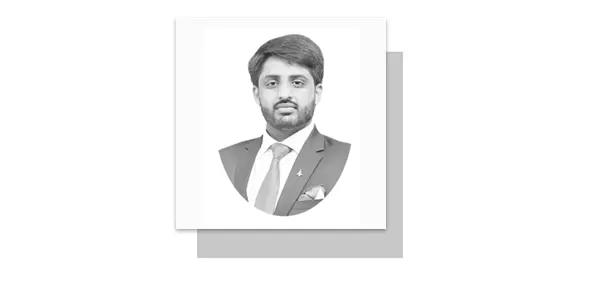ON the ominous date of 9 May, PTI Chairman Imran Khan was detained under various charges, which led to the protests across the country by PTI workers. This deliberate and malicious engagement resulted in the vandalization and arson of public and military properties, including Shuhada Monuments, Jinnah House, GHQ and Radio Pakistan Building. The unprecedented nature of these attacks drew comparisons to infamous events like the 9/11 attacks and those orchestrated by the TTP. Shockingly, some political leaders even likened these events to attacks carried out by India against Pakistan, revealing distressing involvement of the nation’s own political party in a crime against its military and state symbols.
The planners of these attacks seemed oblivious to far-reaching implications on national security, economy and country’s standing in international community. The events of May 9 conveyed a negative message globally, tarnishing image of Army. Economically, social unrest triggered by such events typically leads to a decline in a country’s GDP in subsequent months, exacerbating Pakistan’s already precarious economic situation.
Interestingly, PTI dismissed the accusations as a conspiracy to discredit the party, attributing blame to government. Even Imran Khan, in an attempt to evade responsibility, claimed in court that he was unaware of events due to absence of his mobile phone. However, leaked audio conversations later exposed the falsehood of these claims.
To prevent future occurrences, government and defence forces decided to prosecute planners, instigators, abettors and perpetrators involved in 9 May tragedy under Army Act and Official Secrets Act. While a majority of the nation, viewing the Army as bulwark of national security, supports trying 9 May miscreants in military courts, concerns have been raised by lawyers, journalists, politicians and human rights activists.
These concerns question whether a trial conducted by military courts adheres to due process required for a fair trial, as guaranteed by the Constitution. Misinterpretations of Army Act and its Military Justice System have fuelled discontent among the masses, who fear infringement of basic human rights and erosion of democracy.
To address these concerns, it is essential to understand legal framework underpinning military courts. Military courts operate under Army Act and are integrated into country’s Judicial System. They were incorporated into National Legal System through amendments to Army Act and Constitution in 1973. In the past, Supreme Court upheld jurisdiction of military courts to try and sentence individuals for offences under Army Act.
Military Courts follow a legal procedure that safeguards rights of accused in line with the Constitution, ensuring fairness throughout trial process. This includes provisions for arrest, counsel access, protection against double jeopardy, presentation of charges, provision of evidence, right to a fair hearing, recording of evidence, right to appeal, judicial review and right to file a mercy petition. Civilians tried under Army Act undergo processes similar to those in session courts.
The legitimacy of transferring PTI culprits from civil to military courts for trials under Army Act and Official Secrets Act has been questioned in public domain. Several issues raised revolve around international conventions and domestic laws, considering the legal transfer of individuals from civil to military jurisdiction.
In military courts, accused individuals are kept strictly under legal provisions and human rights principles, with access to defence counsel and near relatives in accordance with provisions of Army Act Section 73. Concerns raised by Amnesty International regarding the trial of civilians in military courts are deemed baseless, as the process of civilians’ trial in military courts is within constitutional parameters of nationally enacted statutes.
Pakistan’s adherence to International Covenant on Civil and Political Rights (ICCPR) is highlighted to emphasize that the trial in military courts doesn’t infringe upon right to a fair trial. The legal procedures ensure basic human rights, including right to prepare a defence and choose legal representation.
The application of International Humanitarian Law (IHL) is applicable in this context where civilians attacked military installations. The 9 May incident is framed as an attack on military installations, which justified use of military courts. The transparency of military court trials is asserted, with a distinction made between open court sessions and ‘In Camera Sessions’ held for sensitive matters. The legal process is claimed to be consistent with Pakistan’s human rights obligations and international laws.
In conclusion, while concerns have been raised regarding the trial of PTI culprits in military courts, the necessity of military courts for swift justice in cases affecting national security is underscored, emphasizing the importance of decisive action against those responsible for 9 May tragedy to prevent future attacks on state symbols and installations.
—The writer is Islamabad based expert of strategic affairs.
Email: asadmalik2008@gmail.com
views expressed are writer’s own.










